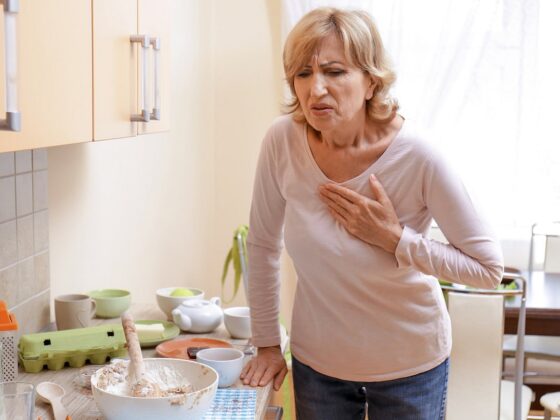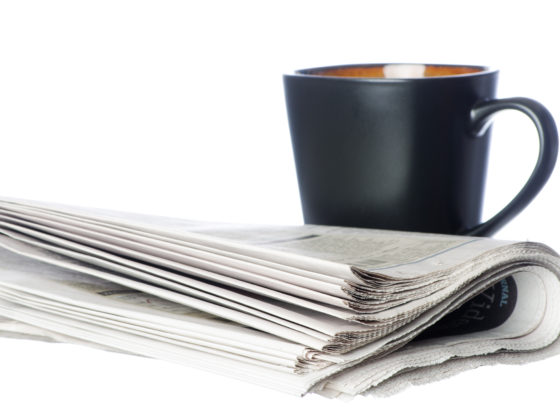
“While we don’t understand everything about sleep, we know it‘s essential for life,” says José Ordovás, director of the Nutrition and Genomics Laboratory at the Jean Mayer USDA Human Nutrition Research Center on Aging. “We can survive extended periods of time without eating, but we cannot go for very long without sleeping.”
Sleep to stay alive
A landmark study funded by the National Institutes of Health in 2006 identified sleep disorders as a public health problem. At that time it was estimated that 50 to 70 million Americans had chronic sleep issues that hindered daily functioning and negatively impacted health and longevity. More recent data from the CDC indicates that over a third of Americans are getting less than seven hours of sleep, and it’s not hard to identify the reasons why. We have become an “always on” society, constantly managing work and family responsibilities, often at the same time. Electronic devices have turbo-charged this trend as they vie for our attention up to the moment we turn in for the night. Paying attention to our sleep habits is timelier than ever.

Sleep and health are connected
Sleep affects chronic health conditions such as obesity, diabetes, heart disease and hypertension, depression, immune function and even life expectancy. Heart disease is the number one killer of both men and women in the U.S., so it’s an important finding that less sleep is associated with harmful plaque build-up and calcification of the arteries supplying oxygen to the heart. Indeed, deeper stages of sleep allow the body time to repair and regrow tissues, build bone and muscle, and strengthen the immune system. Perhaps this is why we’re told to “get some sleep” when we’re sick — sleeping literally gives the body a chance to grow and rebuild our natural defenses against illness.
While our bodies rest during sleep, our brains can be just as active as when we’re awake. Though the science isn’t crystal-clear, research suggests that dreams help to process emotions, memories and abstract thoughts we’re trying to make sense of. This seems counter-intuitive when you wake up and remember a dream that makes absolutely no sense, but this may be connected to fluctuating levels of brain chemicals. Despite this seeming illogical, the theory goes that deep sleep dreams help us creatively think through problems we can’t quite figure out in our conscious hours.
The ultimate performance enhancer
Sleep plays in important role in helping elite athletes perform their best, and the same benefits of better reaction times, accuracy, strength, endurance and cognitive function apply to all of us. Not only for physical performance, but also in creative and intellectual pursuits, sleep can provide an added edge. The Beatles’ songs “Yesterday” and “Let it be” first came to Paul McCartney in his dreams. Russian chemist and inventor Dmitri Mendeleev pulled together the periodic table of elements while dreaming. Unlike a computer, the human brain can combine seemingly unrelated pieces of information into a new creative whole, and sleep facilitates this process.
How sleep works
The body has two internal mechanisms to help regulate when you are awake and when you sleep. Circadian rhythms mostly work through your body’s biological 24-hour day clock. Periods of light and dark are big cues that trigger circadian rhythms. Dark activates the cycle of sleep, while light works to stimulate wakefulness. Melatonin, a hormone naturally produced by the body, reminds the body to wind down and go to sleep. Taking melatonin as a supplement to occasionally help get to sleep may be fine, but prolonged use should be done in consultation with a health care provider.
Working with circadian rhythms, sleep-wake homeostasis is like a time clock keeping track of how much you sleep and how much time has passed since you last slept. You’ll sleep longer and more soundly if you’ve gone without sleep for a while thanks to sleep-wake homeostasis.
A host of factors can interrupt sleep-wake patterns, including medications, stress, what you eat and drink, night work, and changing time zones (jet lag). Counteracting sleep disrupters can be challenging, and strategies vary depending on the source of disruption. Night shift workers, for example, may benefit from a nap, whereas it’s discouraged for others seeking a full night’s rest. Sometimes modest tweaks to your sleep routine will help, such as keeping your bedroom dark and cool. Sleep hygiene refers to a collection of good sleep habits and tips to create an optimal sleep environment. Check out other sleep hygiene tips in the “Getting the best sleep” section below to evaluate how well you’re doing.
Is it possible to sleep too much?
Our sleep needs change over time, starting with up to 16 hours in infancy and tapering off to at least seven hours for adults. If you still feel tired after sleeping more than eight or nine hours, it might be a sign of an underlying problem such as sleep apnea, a breathing disorder that causes brief pauses in breathing during sleep. Symptoms of heart disease, diabetes or depression can also include excessive sleeping, so get your doctor’s help to evaluate the possible reasons behind too much shut-eye. Older people often sleep longer, but don’t assume it’s just a normal part of aging. Try to get to the root of the problem. Do certain medications bring on the doze-off? Is chronic pain getting in the way of sound sleep?
Getting the best sleep
Establishing a routine is at the top of the list when it comes to good sleep hygiene. But there’s more you can do if sleep is proving elusive. Follow these tips that come from sleep experts.
- Keep a consistent sleep schedule. Get up at the same time every day, even on weekends or during vacations.
- Set a bedtime that is early enough for you to get at least seven hours of sleep.
- If you don’t fall asleep after 20 minutes, get out of bed. You don’t want to associate sleeplessness with your bed, so get up and do a quiet activity such as reading or meditating.
- Don’t nap too long or too late in the day.
- Establish a relaxing bedtime routine. Dim the lights, put on pajamas, meditate.
- Use your bed only for sleep and sex.
- Make your bedroom quiet and relaxing. Keep the room at a comfortable, cool temperature.
- Limit exposure to bright light in the evenings, including screens. Bright light at night can confuse the brain and prevent the ramping up of melatonin.
- Turn off electronic devices at least 30 minutes before bedtime.
- Don’t eat a large meal before bedtime. If you are hungry, eat a small healthy snack.
- Exercise regularly and maintain a healthy diet throughout the day.
- Avoid consuming caffeine in the late afternoon or evening.
- Don’t consume much alcohol at bedtime. While alcohol can make you sleepy, it is known to interfere with quality of sleep.
- Reduce your fluid intake before bedtime.
Sleep aids and sleep tracking apps
While it may be tempting to “take something” to fall asleep, it may not help. A new study from Brigham and Women’s Hospital in Boston followed groups of women living in the U.S. Among those in the study, 238 took prescription sleep medications to treat insomnia, while 447 women did not, though they also suffered from insomnia. After tracking the women for two years, the findings showed little-to-no difference in sleep quality for both groups.
The study concluded that while sleep medicines can have positive short-term effects, long-term sleep problems require a multifaceted approach, including the tips listed above as well as the gold-standard — cognitive behavioral therapy for insomnia (CBT-I). CBT-I is a short, structured approach that holistically connects the way we think, the things we do and how we sleep. This evidence-based approach has led to the Department of Veterans Affairs to create an app, called CBT-i Coach, which can be used by veterans and non-veterans.
Sleep tracking apps and wearable devices are increasingly getting more sophisticated and accurate in monitoring body functions related to sleep such as heart rate, oxygen consumption and movement when sleeping. These apps and devices can reveal sleep patterns, such as the hours you get your deepest sleep, or if you sleep better when the bedroom temperature is cooler. Polysomnography, or PSG, is a lab-conducted test that is considered the most comprehensive and accurate method to detect disorders such as sleep apnea. For that, you’ll need to go the traditional route of a sleep study ordered by your doctor.
Sleep more, be happy
The big incentive to prioritize sleep is simple: you’ll be happier and healthier! Small changes can get the ball rolling. Don’t sacrifice sleep time to check your email or review your social media feed. Do pamper yourself by creating a calming bedroom environment that can lull you into sweet dreams. You’ll appreciate the clear-headed and energetic person you can wake up to be.



